Gardening offers both significant rewards and unique challenges. It’s always advantageous to discover methods that enhance efficiency and effectiveness, regardless of whether you are a seasoned expert or just beginning. This article will cover 18 enduring gardening hacks. These suggestions will aid you in naturally managing pests, boosting soil health, and increasing your garden’s output while also saving you time and money.
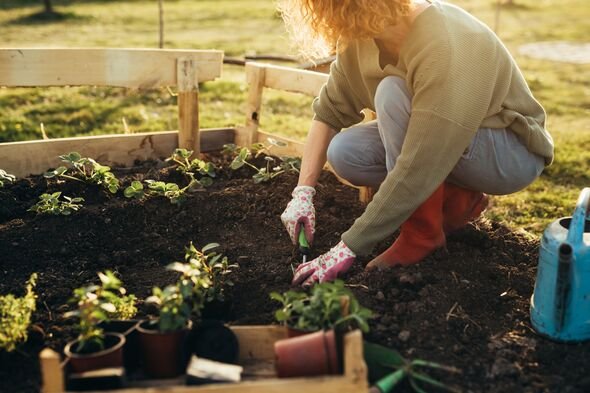
Eggshells as Natural Fertilizer
With their rich calcium content, eggshells are vital for plant development. Introduce crushed eggshells into the soil to provide a consistently released supply of calcium to fortify plant cell walls. This is especially helpful for plants vulnerable to blossom end rot from calcium deficiency, such as peppers and tomatoes.
:max_bytes(150000):strip_icc()/GettyImages-1148157575-1be3420e49134e5ba1a3d298e139f454.jpg)
Coffee Grounds to Enrich Soil
Spent coffee grounds are an outstanding supplement to your garden soil or compost heap. Nitrogen, a vital element for plant growth, is abundant in them. Moreover, coffee grounds enhance soil structure and attract earthworms, which increase nutrient absorption and aerate the ground.

Vinegar as an Effective Weed Killer
Due to its acetic acid level, vinegar serves as an effective and natural herbicide. Direct vinegar application assists in managing the development of weeds without using potent chemicals. It works best on sunny days because heat amplifies how well it works. However, use caution because vinegar can harm desirable plants if applied directly to them.
/vinegar-as-a-natural-weed-killer-3-a61f59cb3a0346609b271f8e0f39a12b.jpg)
Regrowing Plants from Kitchen Scraps
Regrowing plants from food scraps is a cost-effective and sustainable gardening strategy for various vegetables. For instance, placing the roots of celery, lettuce, and green onions in water allows them to regrow. This lowers waste and guarantees a continuous stream of new produce.

The Benefits of Epsom Salt in Gardening
Your garden can greatly benefit from Epsom salt, which is a source of magnesium and sulfate. Plants need magnesium for photosynthesis and to aid in their absorption of other nutrients. Using Epsom salt dissolved in water and administering it to the soil can boost plant growth, especially in peppers, roses, and tomatoes.

Using Irish Spring Soap to Deter Pests
Animals like deer and rabbits can readily be kept away from your garden with Irish Spring soap. The potent aroma is repulsive to these creatures. Simply chop the soap into pieces and disperse it around your garden, or suspend it from stakes to fend off undesirable animals.
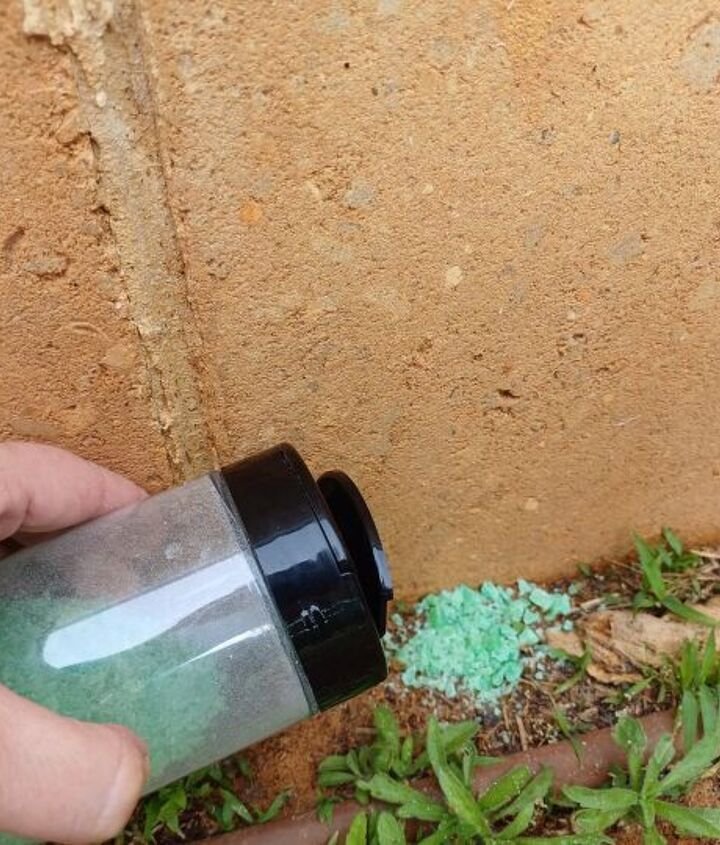
Companion Planting for Natural Pest Control
Companion planting entails planting certain herbs and plants together to promote growth and discourage pests. Planting marigolds near tomatoes, for instance, can repel nematodes, while basil can improve the flavor of tomatoes and repel flies. This lessens the requirement for synthetic pesticides while fostering a robust garden ecosystem.
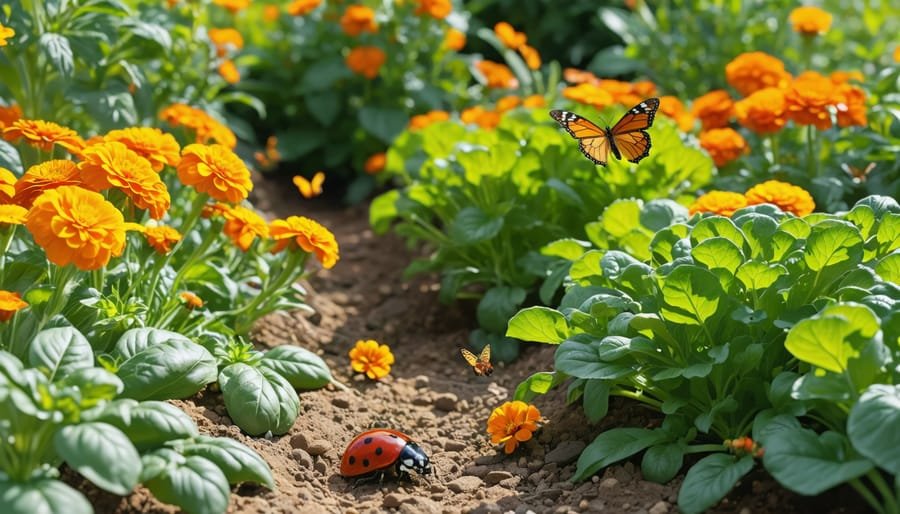
Creating a DIY Drip Irrigation System
Plants can get consistent moisture, and water may be conserved by using a homemade drip irrigation system. By delivering water directly to the plant roots via a network of hoses or tubing with tiny holes, you can prevent runoff and evaporation, making it a very effective irrigation technique.

Mulching with Newspaper to Retain Moisture
Retaining moisture in the soil and preventing weeds can be achieved effectively by mulching with newspaper. Encircle your plants with a few layers of newspaper, then use straw or wood chips as an organic mulch on top. This maintains water levels and infuses the ground with organic matter as the newspaper breaks down.

Using Baking Soda for Sweeter Tomatoes
Baking soda can be used to decrease soil acidity, potentially resulting in sweeter tomatoes. Add a little baking soda around the plant’s base to assist in neutralizing the soil’s pH. Excess use should be avoided as it could damage the plant.

Utilizing Banana Peels for Nutrient Boost
Banana peels are a fantastic natural fertilizer because they are high in phosphorus, potassium, and calcium. Bury banana peels close to your plants in the earth, or steep them in water to make a nutrient-rich tea. This offers a continuous supply of vital nutrients to encourage healthy plant development.

Making a Homemade Compost Bin
Making a compost bin at home is a straightforward and efficient way to use up garden and kitchen waste by turning it into nutrient-rich compost. Construct a wooden framework or utilize a sizable container to store your compost supplies. Regularly turn the items to speed up the decomposition and aerate them. This compost can be used to improve the soil in your yard.
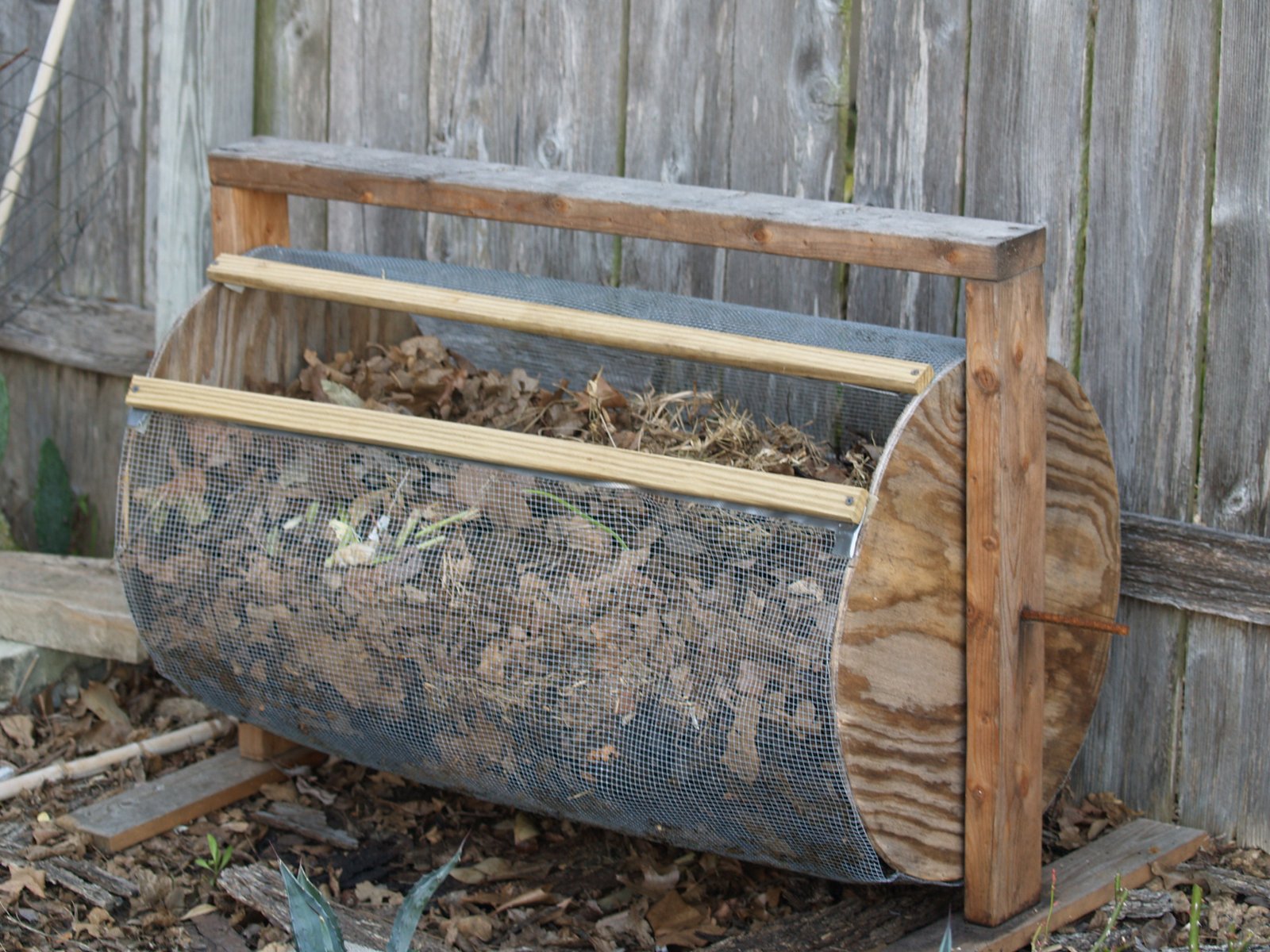
The Power of Cinnamon as a Fungicide
Plants can be effectively treated with cinnamon’s natural antifungal characteristics to prevent and treat fungal illnesses. To prevent fungal infections, sprinkle cinnamon on plant wounds or the soil’s surface. It serves as a secure and all-natural alternative to synthetic fungicides.

Using Hydrogen Peroxide for Root Health
Hydrogen peroxide can be used to encourage robust root growth and stave off root rot. Increase oxygen levels and eradicate dangerous bacteria and fungi by diluting hydrogen peroxide with water and applying it to the soil. This works especially well for seedlings and plants grown in pots.
:max_bytes(150000):strip_icc()/SPR-hydrogen-peroxide-for-plants-8598430-hero-294262becd1d463ea838c07c7674ed53.jpg)
Natural Pest Control with Neem Oil
Neem oil is a natural pesticide made from the neem tree’s seeds. It works well against a wide range of insects, such as spider mites, aphids, and whiteflies. You can manage bug populations without endangering helpful insects by spraying neem oil on plants. It offers a secure and environmentally responsible method of pest management.
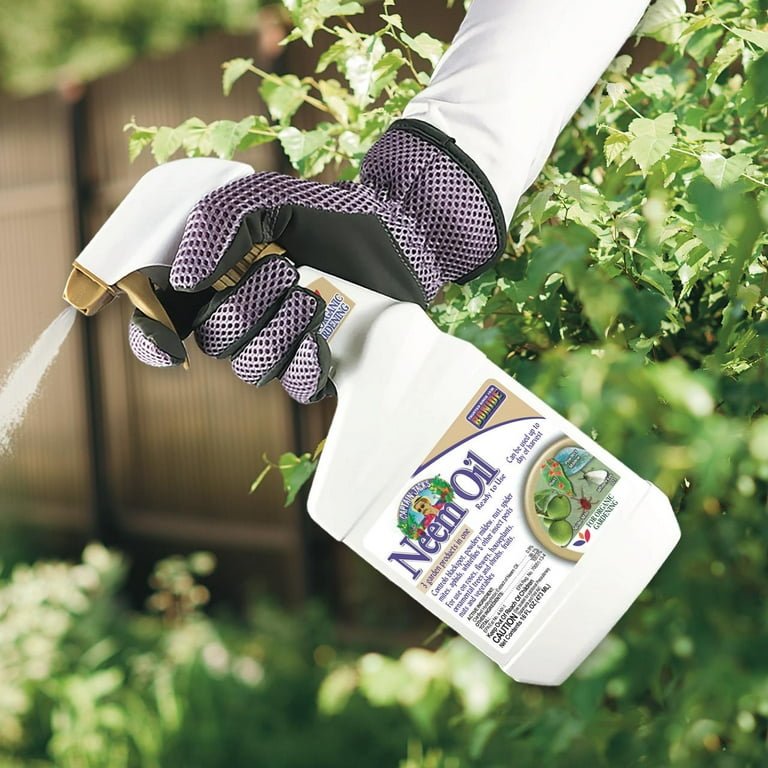
Creating a Vertical Garden for Small Spaces
When there isn’t much room, vertical gardening is a great option. You may cultivate a wide variety of plants in a small space by erecting vertical structures like trellises, wall-mounted planters, or pallets. This technique optimizes space and has the potential to enhance your garden’s visual appeal.

Using Milk to Prevent Fungal Diseases
Milk can be utilized as a natural fungicide to treat and prevent fungal illnesses, such as powdery mildew. Fungal growth can be slowed by mixing milk with water and spraying it on plants that are afflicted. The proteins contained in milk function as an antiseptic, making it a safe and effective treatment.
/how-to-use-milk-to-control-mildew-1402739-14-dd1354720db94ee3926e0a8316c47895.jpg)
The Benefits of Rotating Crops Annually
Each year, crop rotation entails changing the placement of plant families in your garden. This approach maintains healthy soil and guards against the buildup of pests and illnesses in addition to preventing the loss of soil nutrients. You may encourage a healthy garden ecosystem and preserve soil health by rotating your crops.

Conclusion: Maximizing Your Garden’s Potential with Simple Hacks
You may improve the health and productivity of your garden by adding these simple gardening tricks into your regimen. These guidelines offer affordable and natural remedies to common gardening problems, enabling you to cultivate a flourishing garden with less work. These tips offer practical solutions for gardeners of all skill levels, regardless of whether they want to increase soil quality, manage pests, or make the best use of available space. `

